The Tesla Model 3 is the best electric car money can buy, but it has some serious competition. These are some of its toughest rivals.
Matthew DeBord

- The Tesla Model 3 is definitely the best electric car I've ever driven.
- But the Model 3 has rivals, from Jaguar, Chevy, MINI, Nissan, and BMW — and I've also driven all those cars.
- Some of the competition has been around longer than the Model 3, while other vehicles are more luxurious.
- My ranking could offer a few surprises.
- Visit Business Insider's homepage for more stories.
The Tesla Model 3 is, as far as I'm concerned, the best electric car money can buy.
But it isn't the only electric car money can buy. A good thing, as the more EVs on the market, the more robust and sustainable that market is likely to be. Currently, the entire global electric-vehicle market amounts to just 2% of total sales.
I've driven every version of the Model 3 Tesla has produced, but I've also driven a number of other EVs (I have a few I haven't gotten to, as well, so this rundown isn't comprehensive). The interesting thing is that all of these EVs do something well — and in many cases, they do it better than the Model 3.
Here's a ranking of the field:
Read the original article on Business InsiderThe i3 has been discontinued, but like the Leaf, it filled a market gap when it was on sale and gave owners the option of a full-EV platform and an extended-range choice, both with futuristic styling.
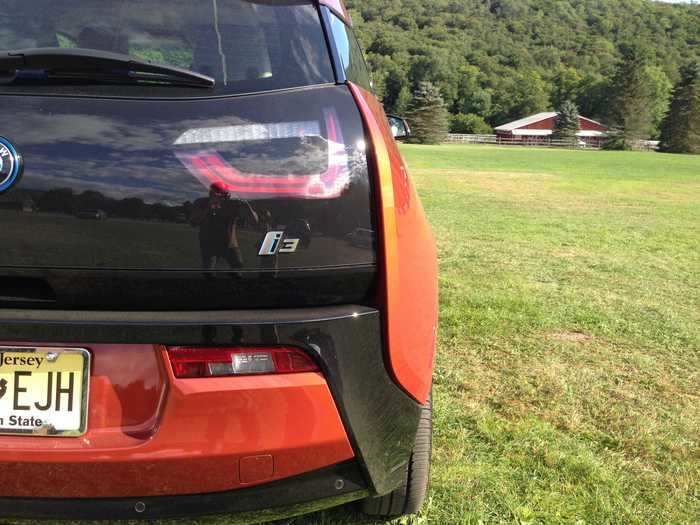
It's best to think of the i3 as an EV that bridged that gap between the mid-2010s electric market and the early 2020s.
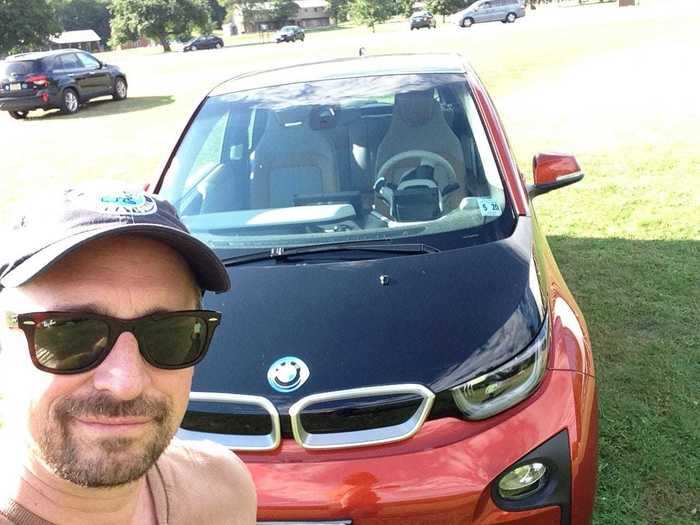
The design of the i3 combined decent interior space with hatchback cargo-carrying versatility.

My fill-ups were hilarious. The tiny gas tank required top-offs to get me home. OK, so maybe the i3 isn't the best road-trip mobile, but it did cover over 240 miles.

My i3 tester car had a range-extender option that paired a small gas motor with the EV drivetrain. When the battery was drained, the motor kicked on to generate more electricity.
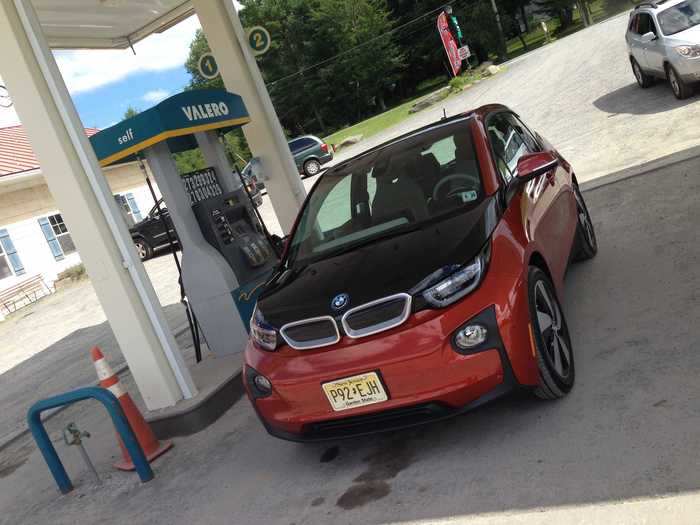
... to a Level 2 charger. Both were rather slow, although Level 2 could rejuice the modest battery in seven hours, while a household outlet would need a long, overnight charge session.
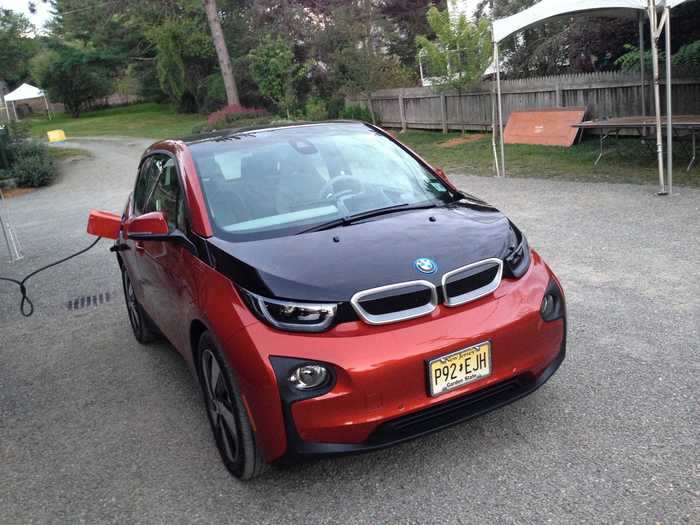
I explored several options for charging the i3, ranging from a simple wall outlet ...
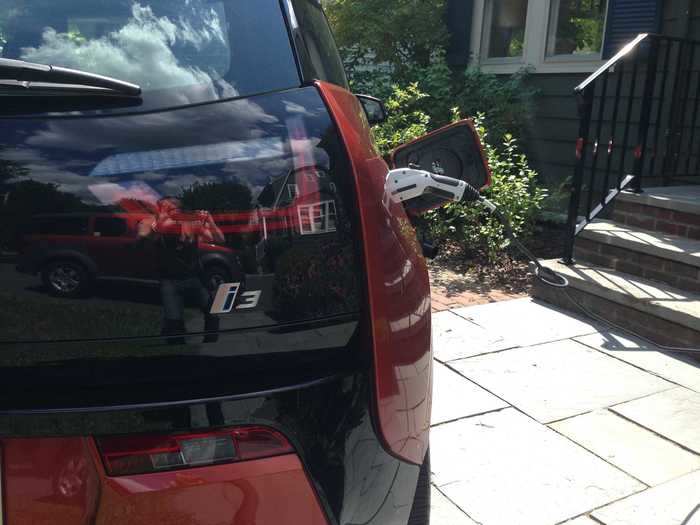
6.) And in sixth place, another veteran — the BMW i3. For a short time several years ago, there was a rumor that the i3 could become the Apple Car. As-tested in 2015, the vehicle was $46,000.
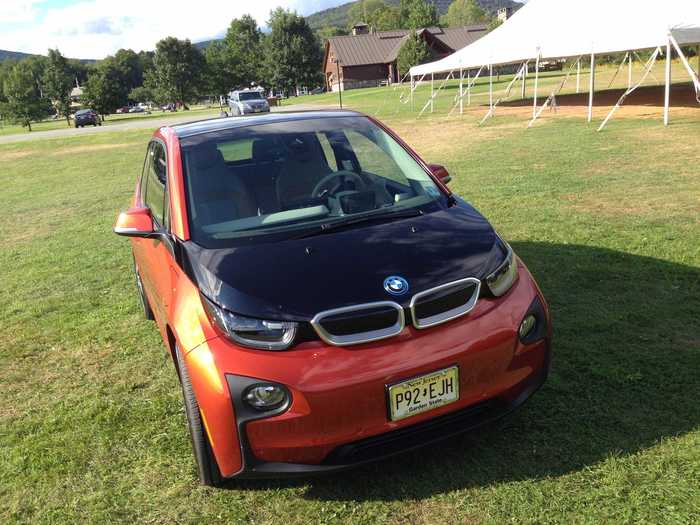
The Leaf Plus improves on what was the only affordable EV available, before the Chevy Bolt arrived. the Leaf also earns points for longevity — it was available in 2010, before even the Tesla Model S first showed up. A pioneer!
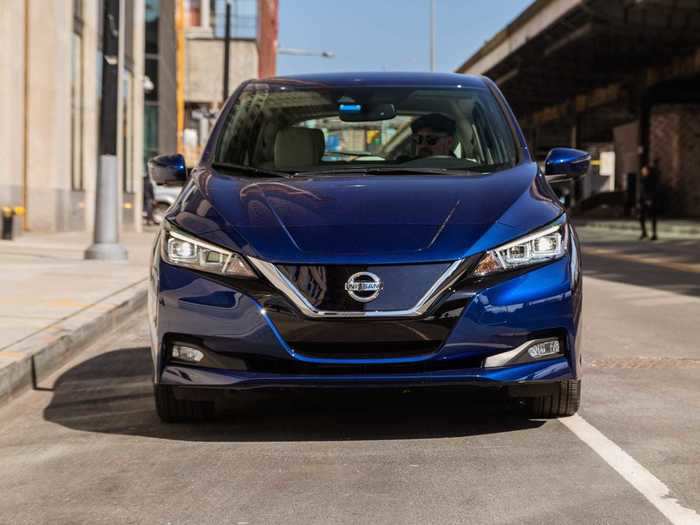
The Leaf's eight-inch color infotainment display looks good, but we aren't the biggest fans of the system's layout. It is easy to use, and Bluetooth device-pairing is a snap. You also have available Apple CarPlay and Android Auto.
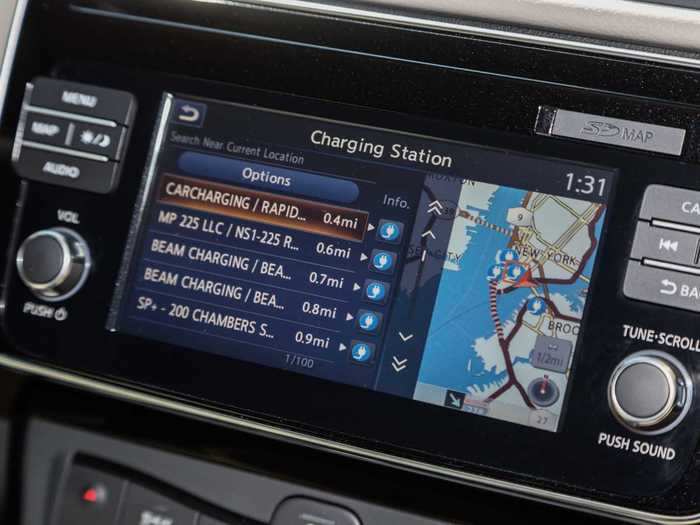
The Leaf Plus' interior was a bit shy of premium, but the seats were comfy, and there was a reasonable amount of space to stow small items. The Leaf has always received criticism for its "tweener" nature. It's not a luxury car, but it's also not barebones. I've always thought it hits a sweet-spot for customers who aren't wealthy but who have the means to invest in an EV.
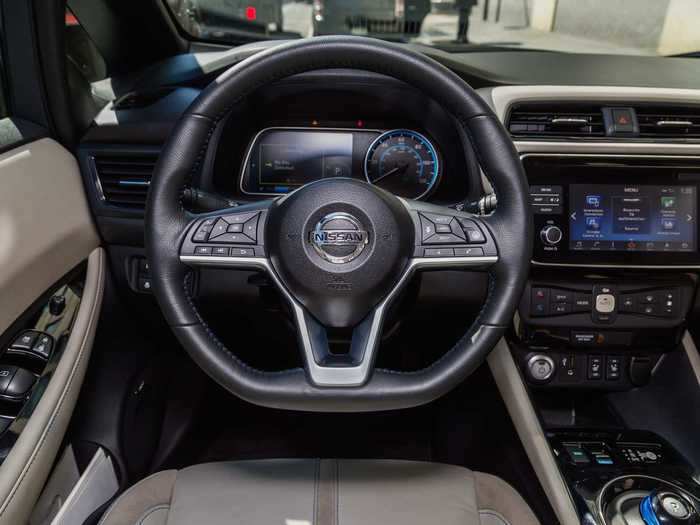
The Leaf Plus serves up 214 miles on a single charge and has a more powerful motor that previous versions of the vehicle. A 62 kilowatt-hour battery added roughly 70 miles of range compared to the standard Leaf's 151-mile battery.
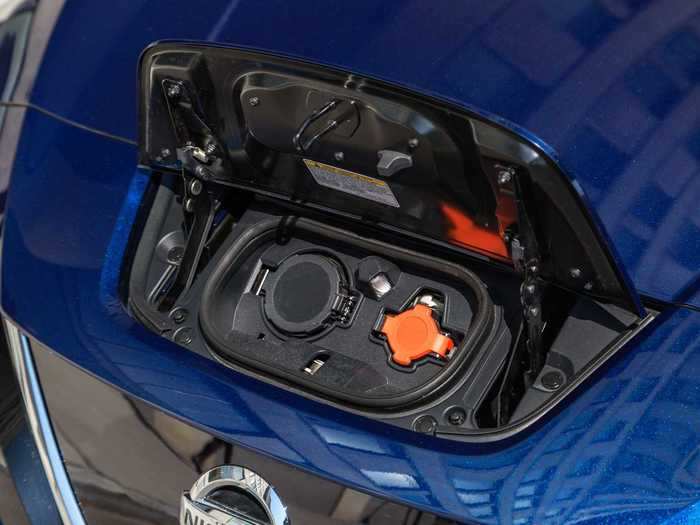
There are two, one for 240V "Level 2" charging and one for fast DC charging. Our Leaf SL Plus had a 160 kWh electric motor, making a juicy 214 horsepower with 250 pound-feet of torque.
There's also an onboard charge cable for "trickle" top-offs using a regular wall outlet for 120V power. Using 240V, the Leaf Plus is back to 100% in 11.5 hours. Fast DC charging, however, can achieve 80% in 45 minutes.
We used the ChargePoint network and did fine with two rounds of 240V charging over the course of a week. It's also possible to install your own 240V ChargePoint unit at home; one can be purchased for about $500, with installation handled by a qualified electrician.
The Leaf's cargo area is an excellent 24 cubic feet, expandable to 30 with the rear seats dropped. The hatch's opening is a tad awkward, with a sort of oval shape.
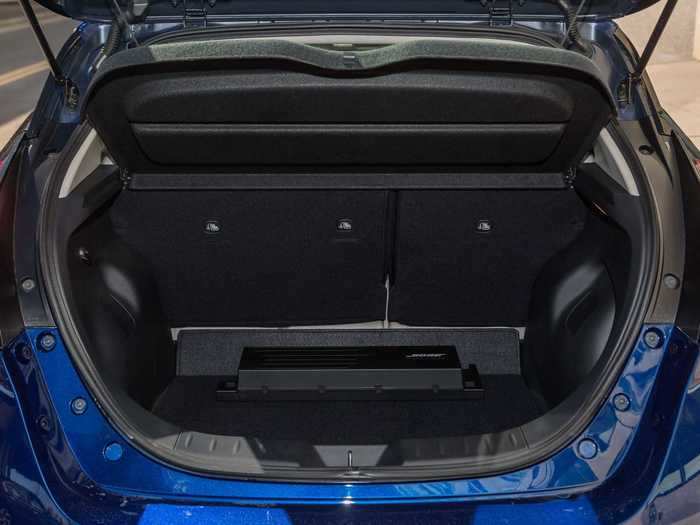
The back seat was about average, space-wise, for the segment.
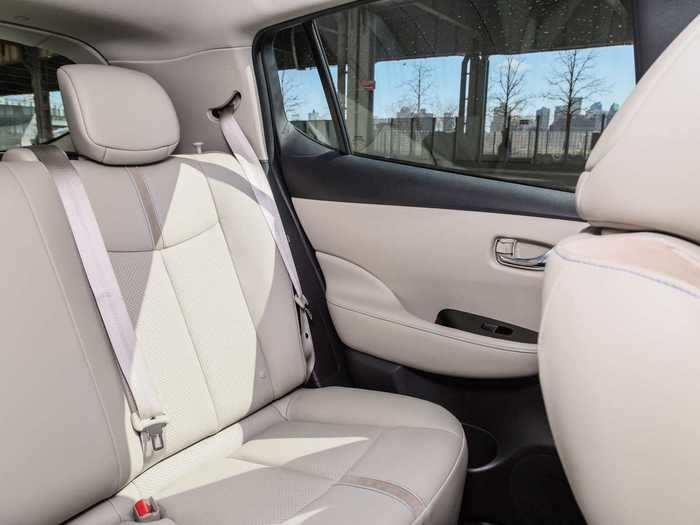
The Leaf has always received criticism for its "tweener" nature. It's not a luxury car, but it's also not barebones. I've always thought it hits a sweet-spot for customers who aren't wealthy but who have the means to invest in an EV.
The Leaf's "Light Gray" interior was pleasant.
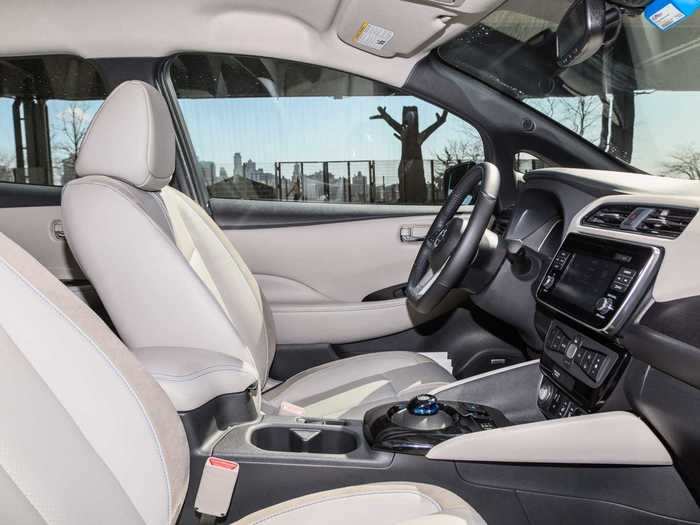
It was a bit shy of premium, but the seats were comfy, and there was a reasonable amount of space to stow small items.
5.) In fifth, we have the stalwart Nissan Leaf — a true veteran. I've driven the car half a dozen times, most recently in Leaf SL Plus trim. Price? $44,000.
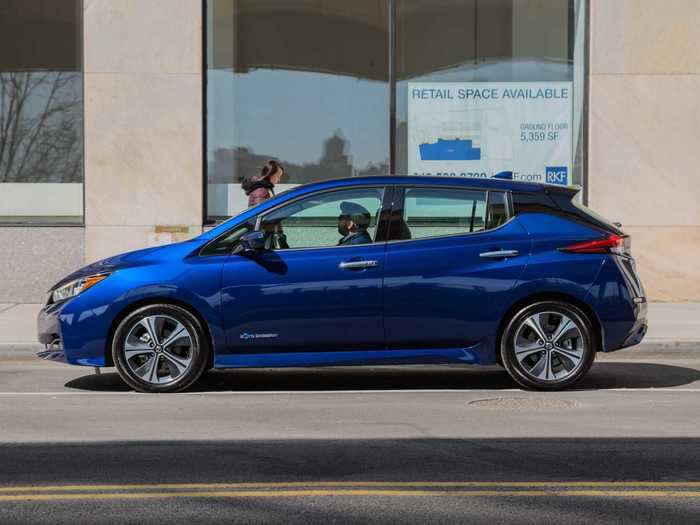
The Bolt remains one of the more affordable EVs on the market — and is about to see its second-generation hit the market. Before the Model 3 landed, it was the only true mass-market EV, and that mission continues to guide it.
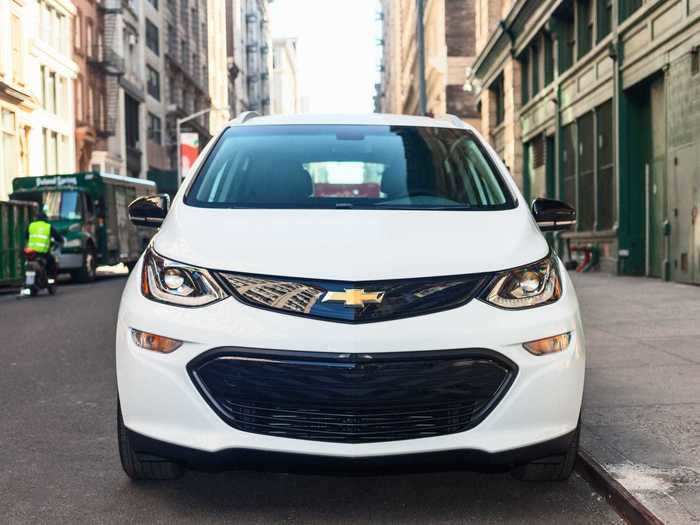
The infotainment system is a snazzy version of GM's excellent setup. The touchscreen interface is intuitive and responsive. It also provides lots of EV-geek-out opportunities.
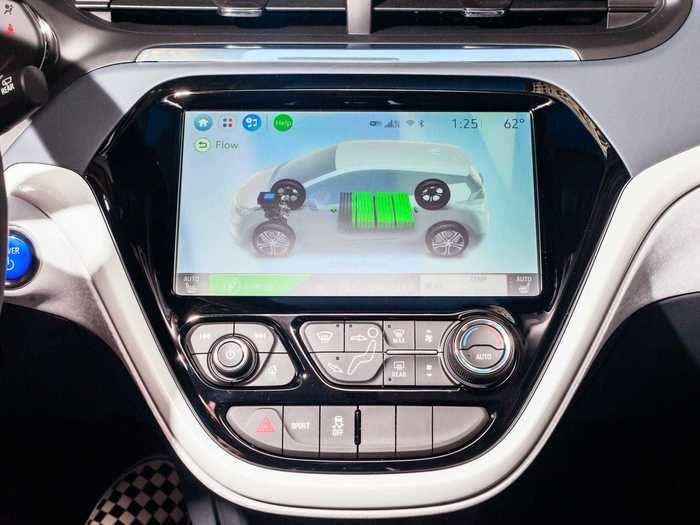
Level 2 charging gets you about 25 miles of charge per hour, so you can get back to fully juiced overnight. This was the variety of charging that we used, plugging the Bolt into a Level 2 ChargePoint station near my house. This worked well, but we had to leave the Bolt parked for long stretches, so many potential owners will want to explore the home setup. The 2020 version of the Bolt gets 259 miles per charge. The 2017-2019 Bolt maxes out at 238 miles per charge.
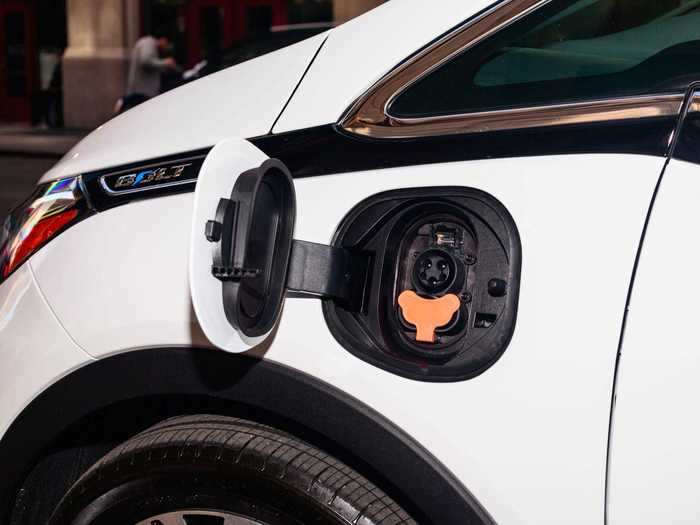
Because there's no engine, gas tank, or conventional drivetrain, the Bolt's interior, front and back, is quite roomy.
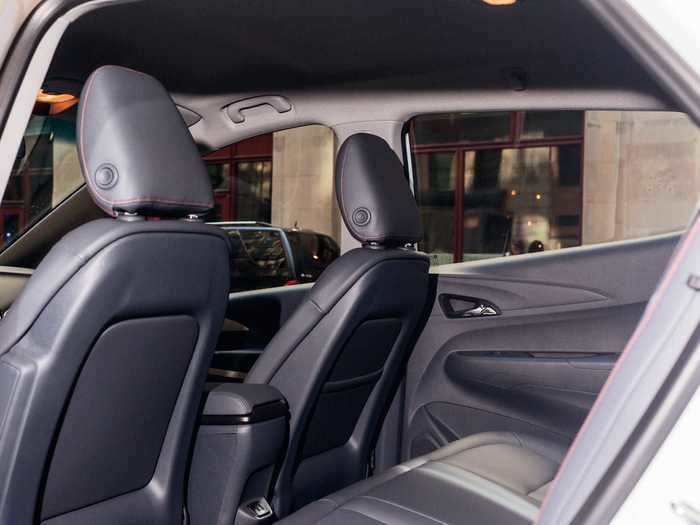
Our tester's interior was "Dark Galvanized Gray," two-tone. Nice, but not exactly premium.
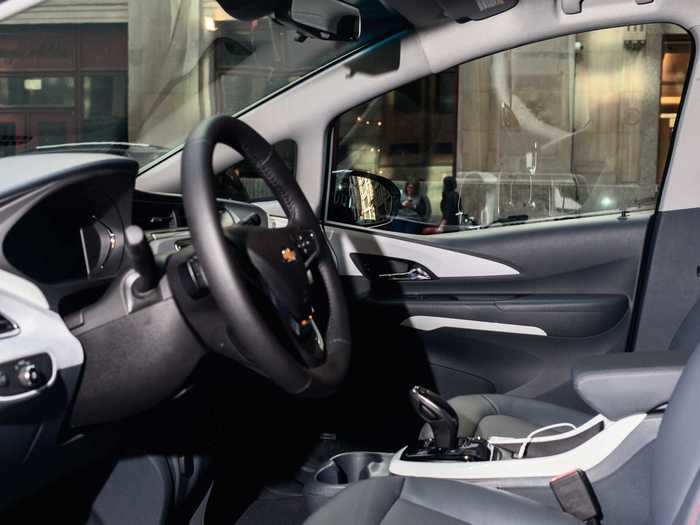
The hatch can swallow a decent amount of cargo, enough for a weekend jaunt and is more than adequate for suburban grocery shopping duty. A family of four would stretch the Bolt's capabilities.
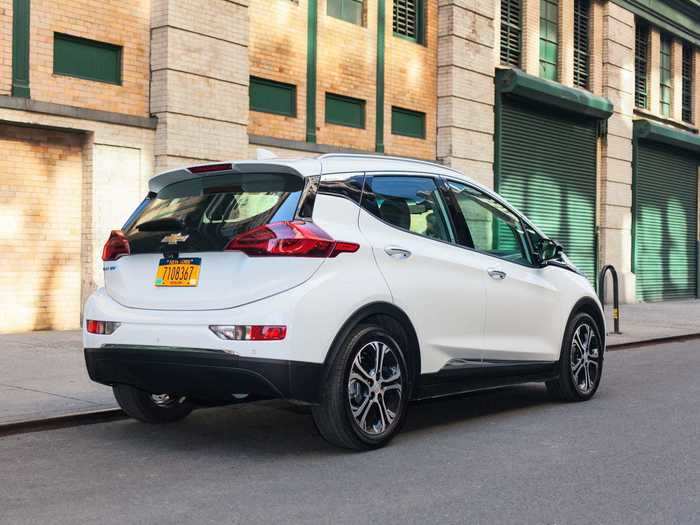
The Bolt was envisioned by the carmaker's Korean studio, a lab for the company's small-car platforms. Because it was engineered around its 60 kWh LG battery pack — which provides actual structural integrity to the car — the Bolt is distinctive within GM's global lineup. That said, it does have that compact-crossover-hatchback look.
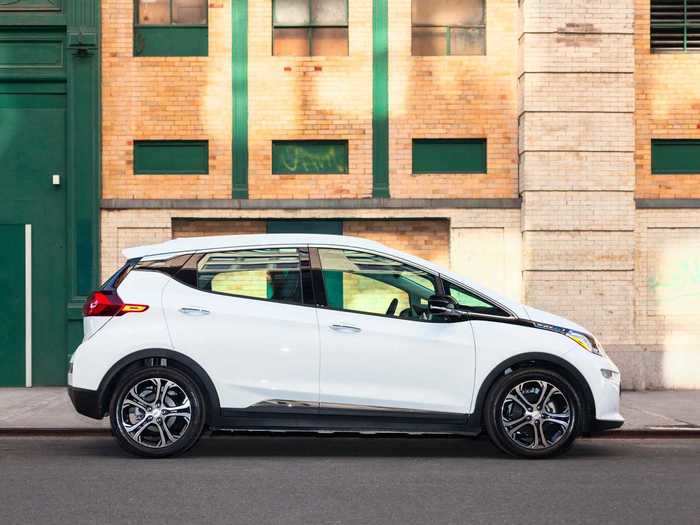
4.) Fourth place goes to the Chevy Bolt. My tester in 2017 was the Premier trim, which starts at $40,905. Once some options were added, we were looking at about $43,000.
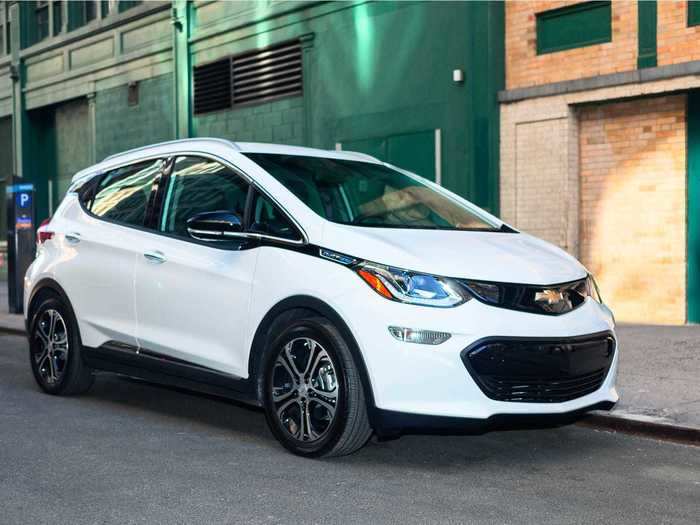
The MINI Cooper Electric is a surprise third-place contestant because it combines the familiar MINI values of motoring pleasure with enough EV range to make for a practical suburban or city runabout.
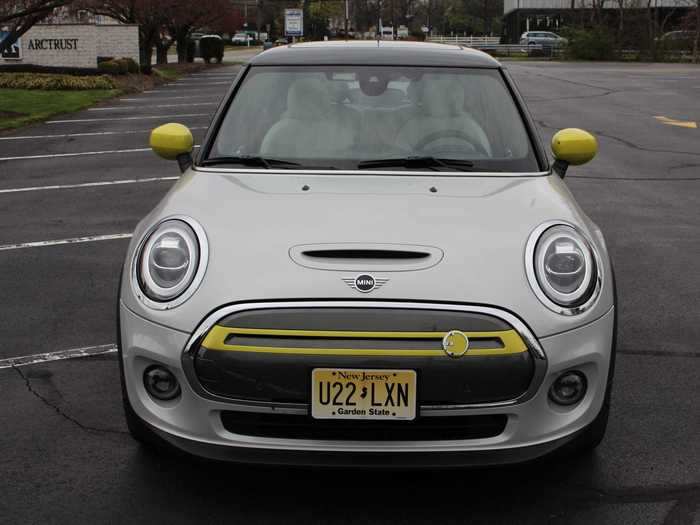
I used ChargePoint's network when I tested the MINI.
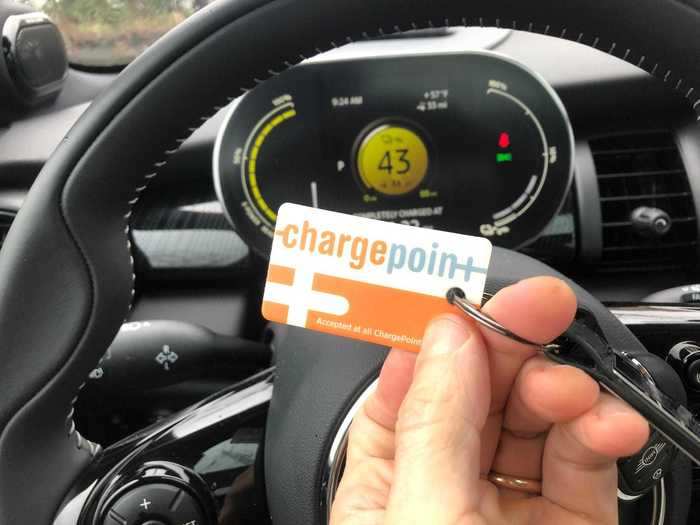
The MINI has access to a network of Level 2 chargers. It would take about six hours to fully rejuice the vehicle, which has a 33-kilowatt-hour, lithium-ion battery, paired with a 135 kWh motor that generates 181 horsepower with 207 pound-feet of torque.
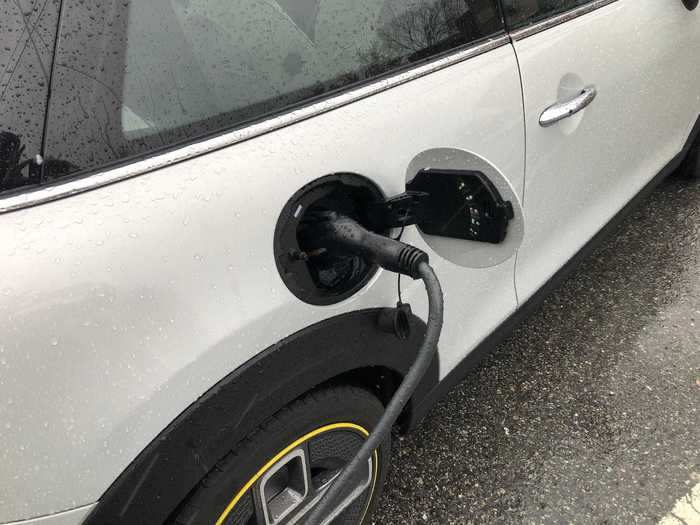
This is where the magic happens. EVs already have go-kart handling characteristics, but the MINI Cooper was already a blast to drive, so adding instant torque with an electric motor turns the MINI into a car that's tough to constrain at the legal speed limit.
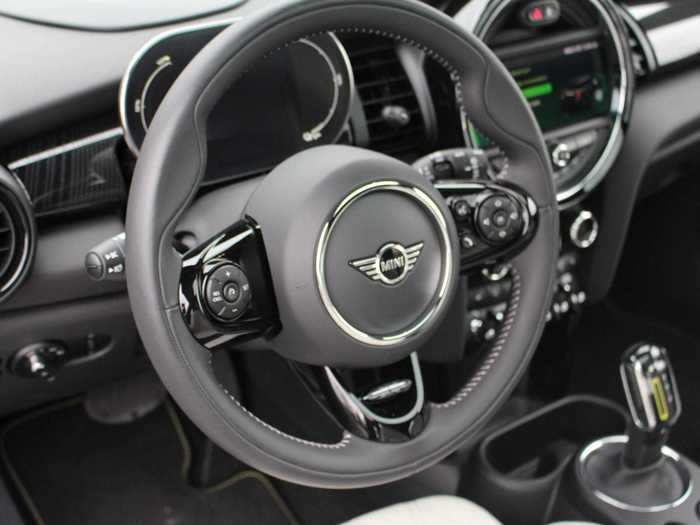
Cargo capacity for this two door is pretty limited, unless one drops the back seats.
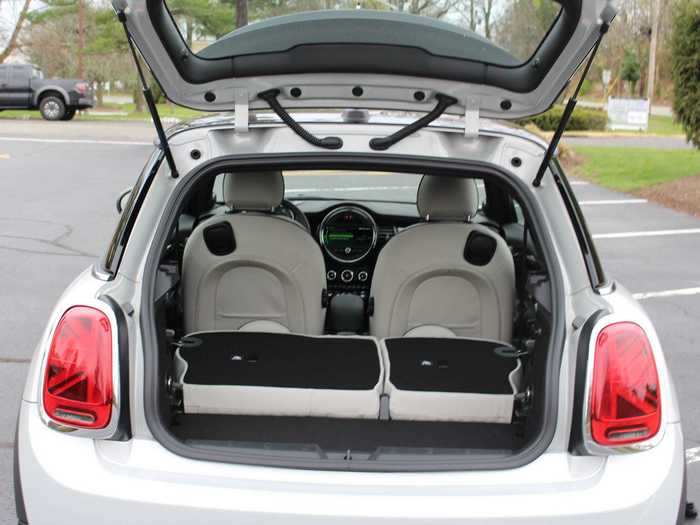
The MINI's interior is rather premium, but it's also full of the usual MINI flair, including throwback switches and a large, round-framed infotainment screen.
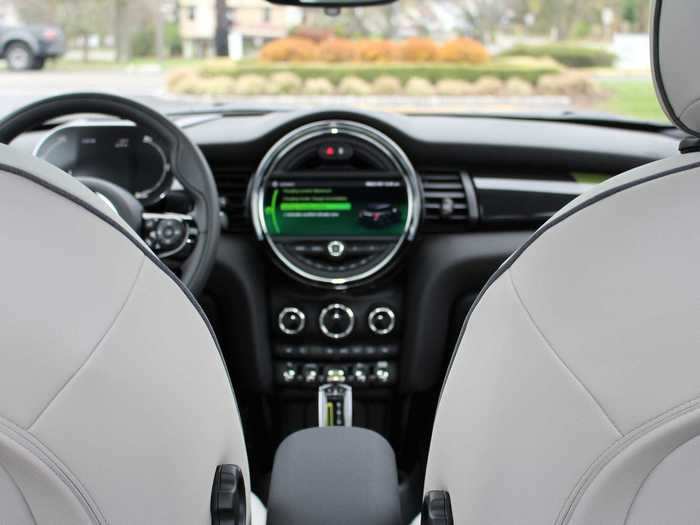
It's in third place despite its skimpy range relative to most popular EVs on the market. The MINI comes in at just over 100 miles per charge, versus over 200 miles for the major players. But what the MINI Electric offers in abundance is driving thrills.
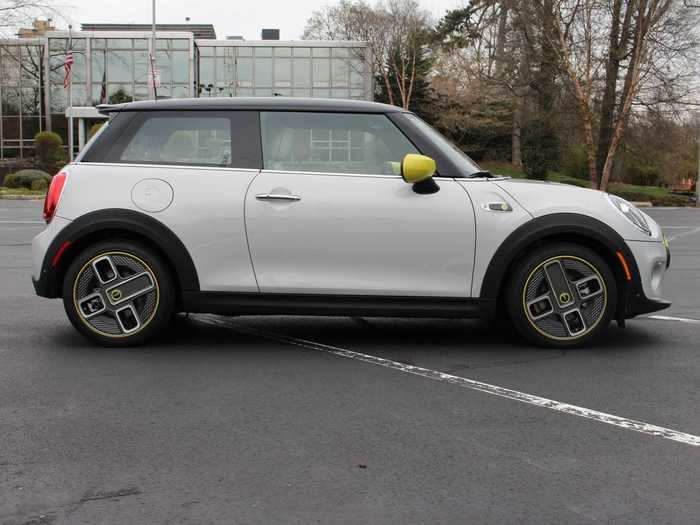
3.) In third — an upstart! It's the new 2020 MINI Cooper SE Electric. On the outside, it looks just like a MINI Cooper. But on the inside, it has an entirely electric drivetrain. Price? $38,000.

The I-PACE is my number two because it's a great package: luxurious, fun to drive, and offering crossover SUV capability.
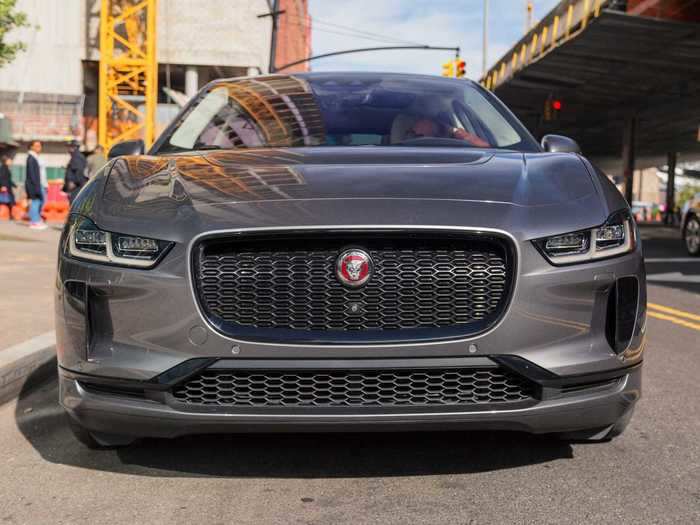
If the I-PACE has a weak spot, it's the Jaguar Land Rover infotainment system, which we've always somewhat struggled with, despite JLR's improvements to the interface.
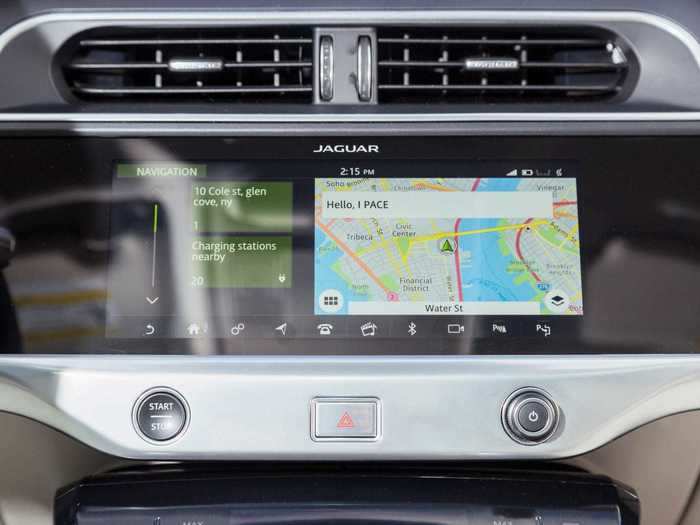
The Jag has a 90kWh battery pack and a range of 234 miles on a single charge. It can power a 0-60 mph dash in 4.5 seconds.
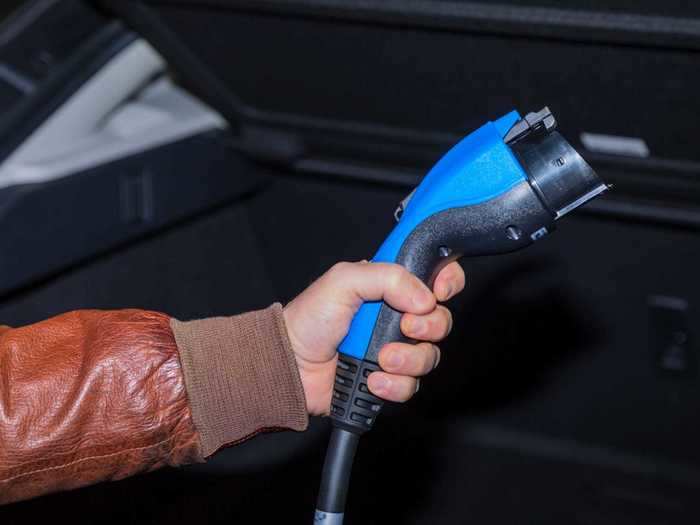
Open up the rear hatch and you'll find 25 cubic feet of storage space behind the rear seats. Cargo capacity expands to 51 cubic feet if you fold the rear seats down. That's comparable with compact SUVs in the gas-powered segment.
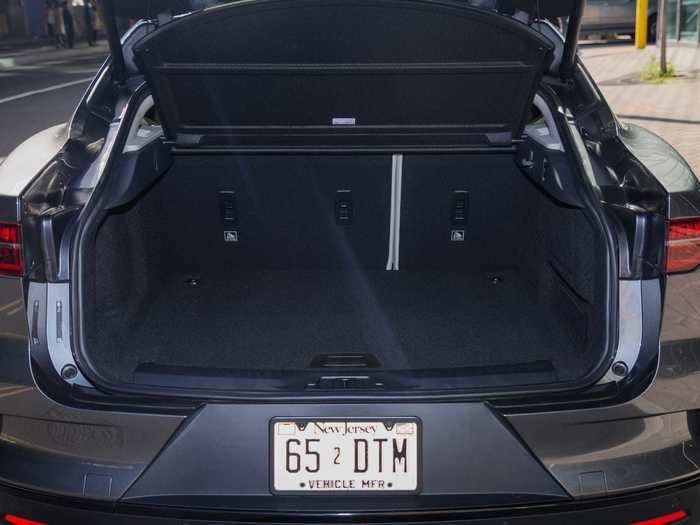
The I-PACE is powered by a pair of permanent magnet synchronous electric motors located on each of the car's axles. They draw power from a 90 kWh lithium-ion battery pack.
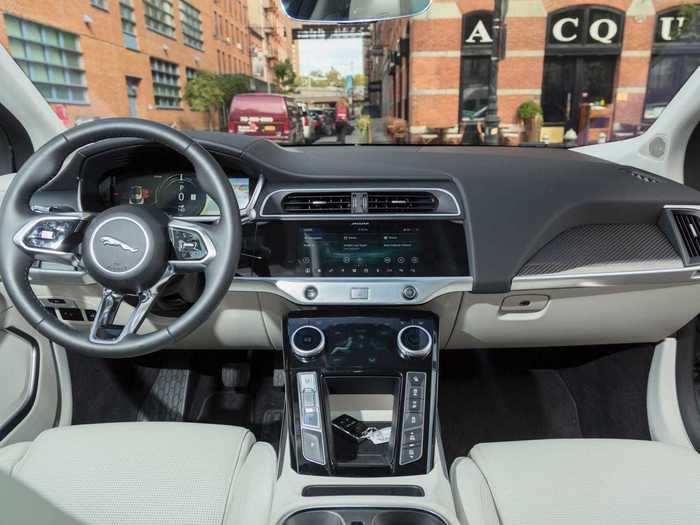
The beauty doesn't end on the outside, by the way. The I-PACE's interior is magnificent — a genuinely premium execution.
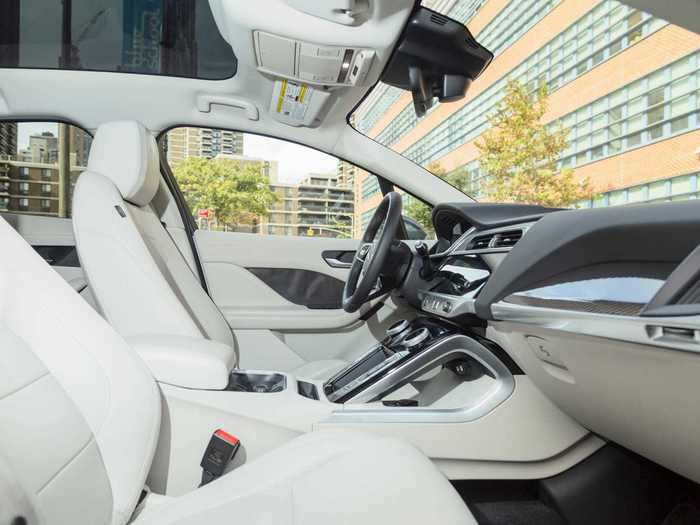
The I-PACE is, for me, the sharpest EV around. But that's to be expected from Jag, with its vast heritage of designing beautiful cars.

2.) Second place goes to the fabulous Jaguar I-PACE. The I-PACE hit the market before Tesla started selling its Model Y SUV, so for a time it was the only proper electric crossover you could get. Price? $87,000, as-tested.
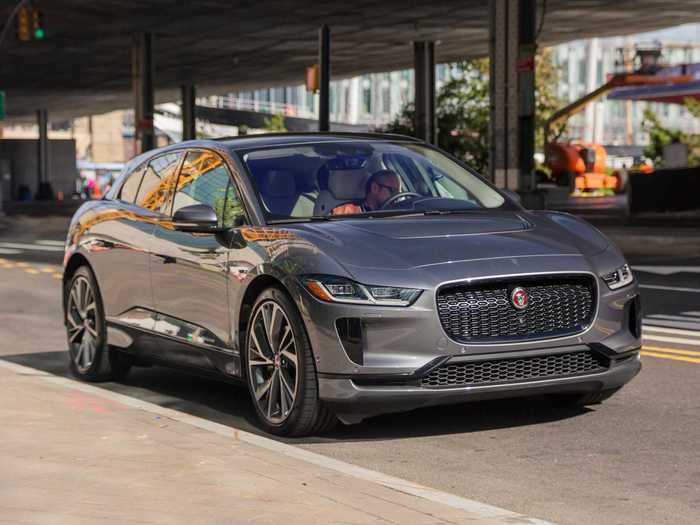
The Model 3 is the king of EVs in my book because it's so crammed with great ideas. But beyond that, it's simply a fun car to drive that offers tech, style, and versatility.
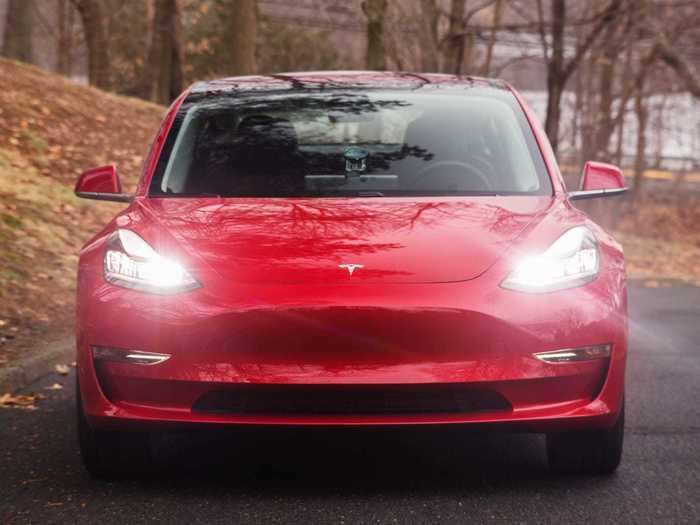
Tesla is also a leader in technology. The Model 3 substitutes an app for a key (there's a wallet-card backup, and you can also order a fob if you want). It enables owners to manage vehicle functions and systems using their smartphones.
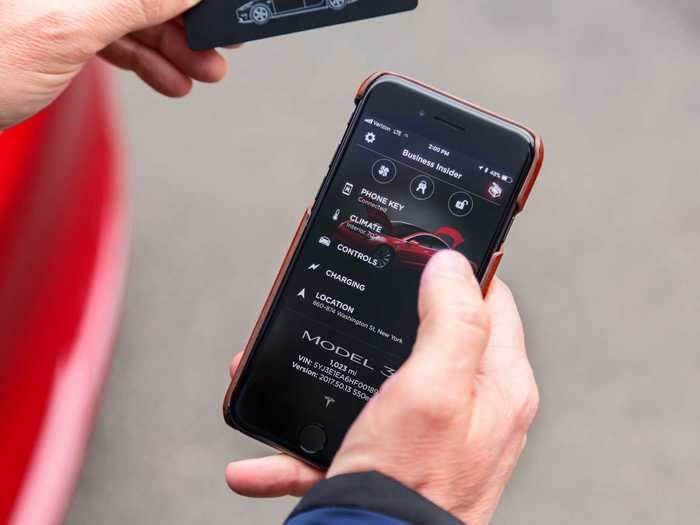
The Model 3's ultra-minimalist interior has established a trend for the entire auto industry. In the future, expect to see more screens and fewer buttons and knobs.
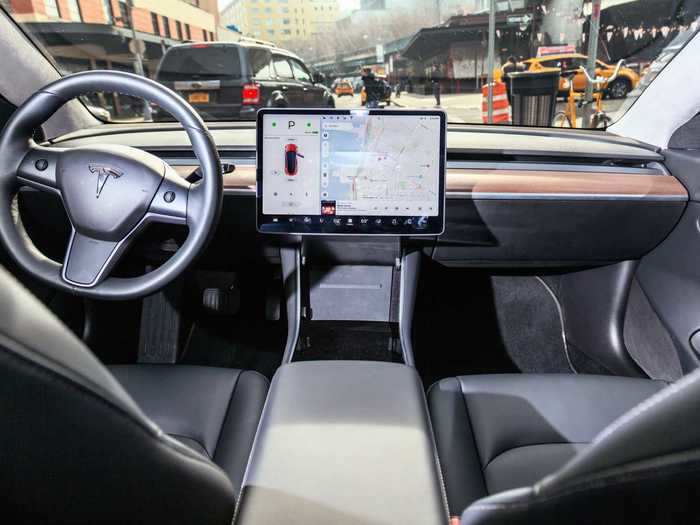
The Model 3 might be a sedan, but it has the cargo capacity of a crossover SUV, thanks to a segment-appropriate trunk and a front "frunk."

Tesla's biggest single advantage over the competition is its fast-charging ecosystem. All Tesla owners have access to the Supercharger network, which can restore a Tesla's battery to full in about an hour. The Supercharger can also talk to a Tesla's systems, helping to plot a course on a longer journey.

... and the less expensive but still superb rear-wheel-drive version with a black interior. The car I reviewed was $58,000 at the time, but Tesla now sells cheaper versions. My tester had a 75-kilowatt-hour battery pack and could travel 310 miles on a single charge.

I've driven several versions, including the very satisfying all-wheel-drive Performance trim with the highly desirable white interior ...

1.) First up, the champ! The Tesla Model 3 is currently the best all-electric vehicle that human money can buy on planet Earth.
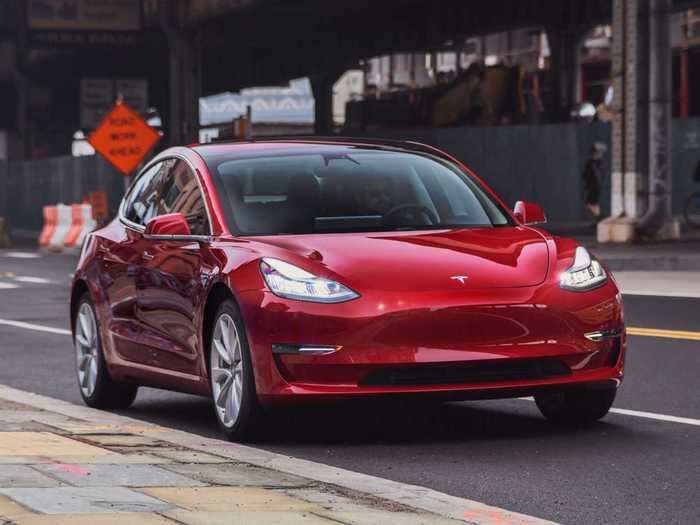
READ MORE ARTICLES ON
Popular Right Now
Popular Keywords
Advertisement